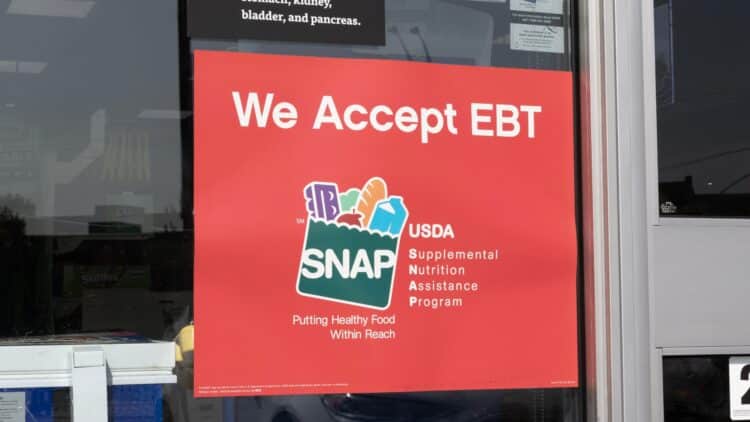The way we shop at the supermarket is changing significantly, and the Trump administration has something to do with it. In a move to cut public spending and encourage self-sufficiency among the population, the new federal law is tightening access to benefits under the Supplemental Nutrition Assistance Program (SNAP), commonly known as food stamps or EBT cards.
The state of Oregon is one of the first in the country to take this step. State officials estimate that nearly 42% of current beneficiaries (approximately 313,000 people) will see their SNAP benefits drastically reduced… or simply eliminated.
This is part of the 2025 legislation, dubbed the “One Big Beautiful Bill Act” (OBBB). This legislation seeks to reduce public spending to combat inflation and tighten work requirements. It seeks to correct what many critics—including Thomas Sowell—label a “culture of dependency.” Some expert economists and sociologists are of the opinion that, while they are good temporary measures, systematic subsidies create “perverse incentives” that discourage people from seeking work and prospering on their own.
Who will lose their food stamps?
The main group that will see their food stamps reduced will be Able-Bodied Adults Without Dependents (ABAWDs). They risk losing their benefits entirely if they do not comply with new, stricter rules. For example, the age limit for the work requirement is being extended from 54 to 64. Now, anyone between the ages of 18 and 64 (if they do not have a disability) will be subject to this time limit.
The definition of ABAWD is also changing: children over the age of 14 will be considered adults, so if your youngest child is 14 or older, you are considered an ABAWD. This will force many parents to meet work requirements for the first time in a long time.
The new law also eliminates exemptions that protected groups traditionally considered highly vulnerable. Now, military veterans, homeless individuals, and youth who have been in the foster care system are no longer automatically exempt from work requirements.
In general, you have to show that you are actively looking for work, not just waiting for the beginning of the month when your EBT card is activated.
Not only will citizens lose access to benefits, but certain groups of immigrants with legal status, such as undocumented immigrants and political refugees, will also lose their eligibility for SNAP.
Vulnerable households that do not have an elderly family member (over 60 years old) or a physically disabled person will also lose this subsidy.
80 Hours to Keep Assistance
The Trump Administration is making it clear that SNAP benefits are no longer long-term assistance that you can receive for years, but rather a safety net for a couple of months until you can get back on your feet and find any kind of job to support yourself.
If you now fall into the ABAWD category, the clock is ticking. Starting October 1, 2025, you will only be eligible for three months of benefits in a three-year period unless you meet the work requirements. To continue receiving benefits, a person must participate in work activities for an average of at least 80 hours per month (about 20 hours per week). However, this does not necessarily mean that it has to be paid work: it can be a combination of paid work, volunteer hours, or participation in an employment program (such as SNAP’s STEP program).
In Oregon, these requirements took effect in six counties on October 1, 2025. By next year, this new rule will apply in all counties in the state.
Exemptions for food stamps
Despite the alarmism, there are many beneficiaries who will not be affected by the new work rules. People with physical or mental disabilities do not have to meet the 80-hour requirement. On the other hand, people over the age of 60 are also not subject to the ABAWD rule. Pregnant women and caregivers of children under the age of 14 are also exempt. If you are enrolled part-time in an educational or addiction treatment program, you will also be exempt.

